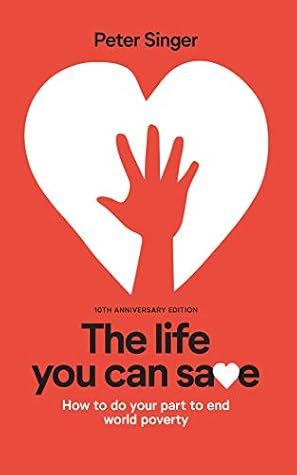More on this book
Community
Kindle Notes & Highlights
by
Peter Singer
Read between
December 11 - December 17, 2020
Most of us are absolutely certain that we wouldn’t hesitate to save a drowning child, and that we would do it at considerable cost to ourselves. Yet while thousands of children die each day, we spend money on things we take for granted and would hardly notice if they were not there. Is that wrong? If so, how far does our obligation to the poor go?
but if we reject moral relativism in some situations, then we should reject it everywhere.
Nobel Prize-winning economist and social scientist Herbert Simon estimated that “social capital” is responsible for at least 90% of what people earn in wealthy societies.
Simon was talking about living in a society with good institutions, such as an efficient banking system, a police force that will protect you from criminals, and courts to which you can turn with reasonable hope of a just decision if someone breaches a contract with you. Infrastructure in the form of roads, communications, and a reliable power supply is also part of our social capital. Without these, you will struggle to escape poverty, no matter how hard you work. And most of the poor do work at least as hard as you or I. They have little choice, even though they almost always work in
...more
1% of the world’s people own 45% of the world’s wealth, and less than 10% own 84% of the wealth. At the other end of the spectrum, 64% of the world’s people own only 2% of the world’s wealth.[lv] A 2019 Oxfam report makes an even more dramatic claim: the world’s 26 richest people own as much as the poorest 50% of the global population.
The International Monetary Fund has estimated that the developing economies will need climate adaptation investment of $80 billion a year until 2050. In 2014, only $9.3 billion was being invested for that purpose. The International Monetary Fund added: “On equity grounds, there is some appeal in linking climate finance donations from advanced economies to their contribution to climate change.”
One reason why we should not cut off aid to countries with high population growth is that there is an abundance of evidence that reducing poverty also reduces fertility.
“identifiable victim effect” leads to “the rule of rescue”: we will spend far more to rescue an identifiable victim than we will to save a “statistical life.”
Paul Slovic, who coauthored this study, concludes that “the proportion of lives saved often carries more weight than the number of lives saved.”
I guess basically one wants to feel that one’s life has amounted to more than just consuming products and generating garbage. I think that one likes to look back and say that one’s done the best one can to make this a better place for others. You can look at it from this point of view: what greater motivation can there be than doing whatever one possibly can to reduce pain and suffering?


